
Filter News
Area of Research
News Topics
- (-) Grid (9)
- (-) Partnerships (16)
- 3-D Printing/Advanced Manufacturing (16)
- Advanced Reactors (3)
- Artificial Intelligence (26)
- Big Data (13)
- Bioenergy (11)
- Biology (13)
- Biomedical (6)
- Biotechnology (6)
- Buildings (15)
- Chemical Sciences (16)
- Clean Water (4)
- Climate Change (21)
- Composites (7)
- Computer Science (25)
- Critical Materials (6)
- Decarbonization (22)
- Education (1)
- Emergency (1)
- Energy Storage (10)
- Environment (21)
- Exascale Computing (7)
- Fossil Energy (3)
- Frontier (8)
- Fusion (6)
- High-Performance Computing (17)
- Isotopes (11)
- ITER (1)
- Machine Learning (9)
- Materials (14)
- Materials Science (17)
- Mathematics (4)
- Microelectronics (1)
- Microscopy (2)
- Nanotechnology (2)
- National Security (18)
- Net Zero (6)
- Neutron Science (10)
- Nuclear Energy (10)
- Physics (6)
- Polymers (5)
- Quantum Computing (11)
- Quantum Science (12)
- Security (2)
- Simulation (14)
- Space Exploration (3)
- Statistics (2)
- Summit (6)
- Sustainable Energy (20)
- Transportation (12)
Media Contacts

Seven entrepreneurs comprise the next cohort of Innovation Crossroads, a DOE Lab-Embedded Entrepreneurship Program node based at ORNL. The program provides energy-related startup founders from across the nation with access to ORNL’s unique scientific resources and capabilities, as well as connect them with experts, mentors and networks to accelerate their efforts to take their world-changing ideas to the marketplace.
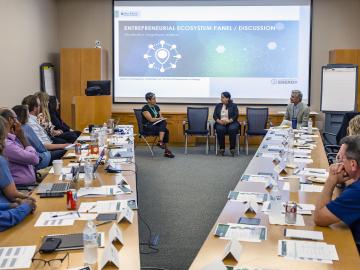
Five researchers at the Department of Energy’s Oak Ridge National Laboratory recently completed an eight-week pilot commercialization coaching program as part of Safari, a program funded by DOE’s Office of Technology Transitions, or OTT, Practices to Accelerate the Commercialization of Technologies, or PACT.
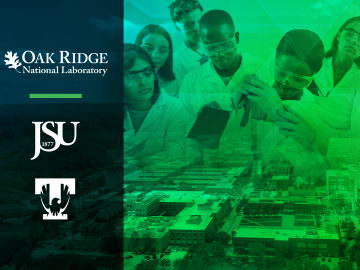
The National Security Sciences Directorate within the Department of Energy’s Oak Ridge National Laboratory has signed a memoranda of understanding with Jackson State University and with Tennessee Tech University. The MOUs detail ORNL’s intention to work with each university to enhance research and educational opportunities in nuclear science and engineering.
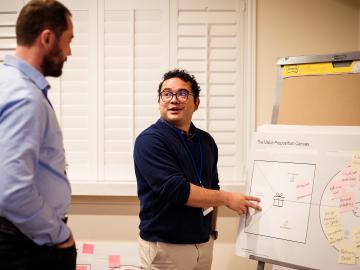
Two ORNL teams recently completed Cohort 18 of Energy I-Corps, an immersive two-month training program where the scientists define their technology’s value propositions, conduct stakeholder discovery interviews and develop viable market pathways.
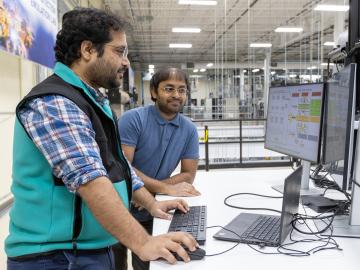
Power companies and electric grid developers turn to simulation tools as they attempt to understand how modern equipment will be affected by rapidly unfolding events in a complex grid.
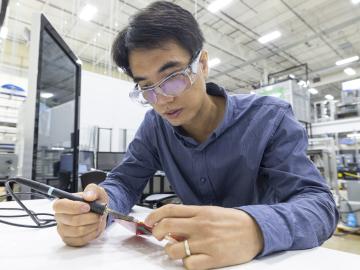
Researchers at the Department of Energy’s Oak Ridge National Laboratory and partner institutions have launched a project to develop an innovative suite of tools that will employ machine learning algorithms for more effective cybersecurity analysis of the U.S. power grid.
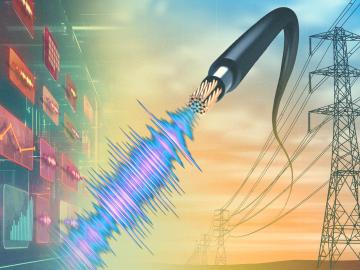
Researchers at Oak Ridge National Laboratory have opened a new virtual library where visitors can check out waveforms instead of books. So far, more than 350 users worldwide have utilized the library, which provides vital understanding of an increasingly complex grid.
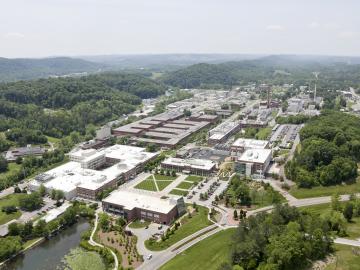
Advanced materials research to enable energy-efficient, cost-competitive and environmentally friendly technologies for the United States and Japan is the goal of a memorandum of understanding, or MOU, between the Department of Energy’s Oak Ridge National Laboratory and Japan’s National Institute of Materials Science.
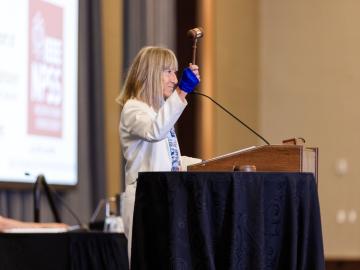
In May, the Department of Energy’s Oak Ridge and Brookhaven national laboratories co-hosted the 15th annual International Particle Accelerator Conference, or IPAC, at the Music City Center in Nashville, Tennessee.
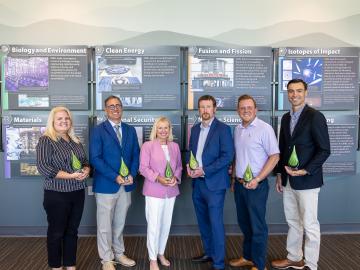
Six firms received Small Business Awards from the Department of Energy’s Oak Ridge National Laboratory. The companies, selected from small business service providers to the lab, were recognized by ORNL's Small Business Programs Office for their specific capabilities and contributions.


